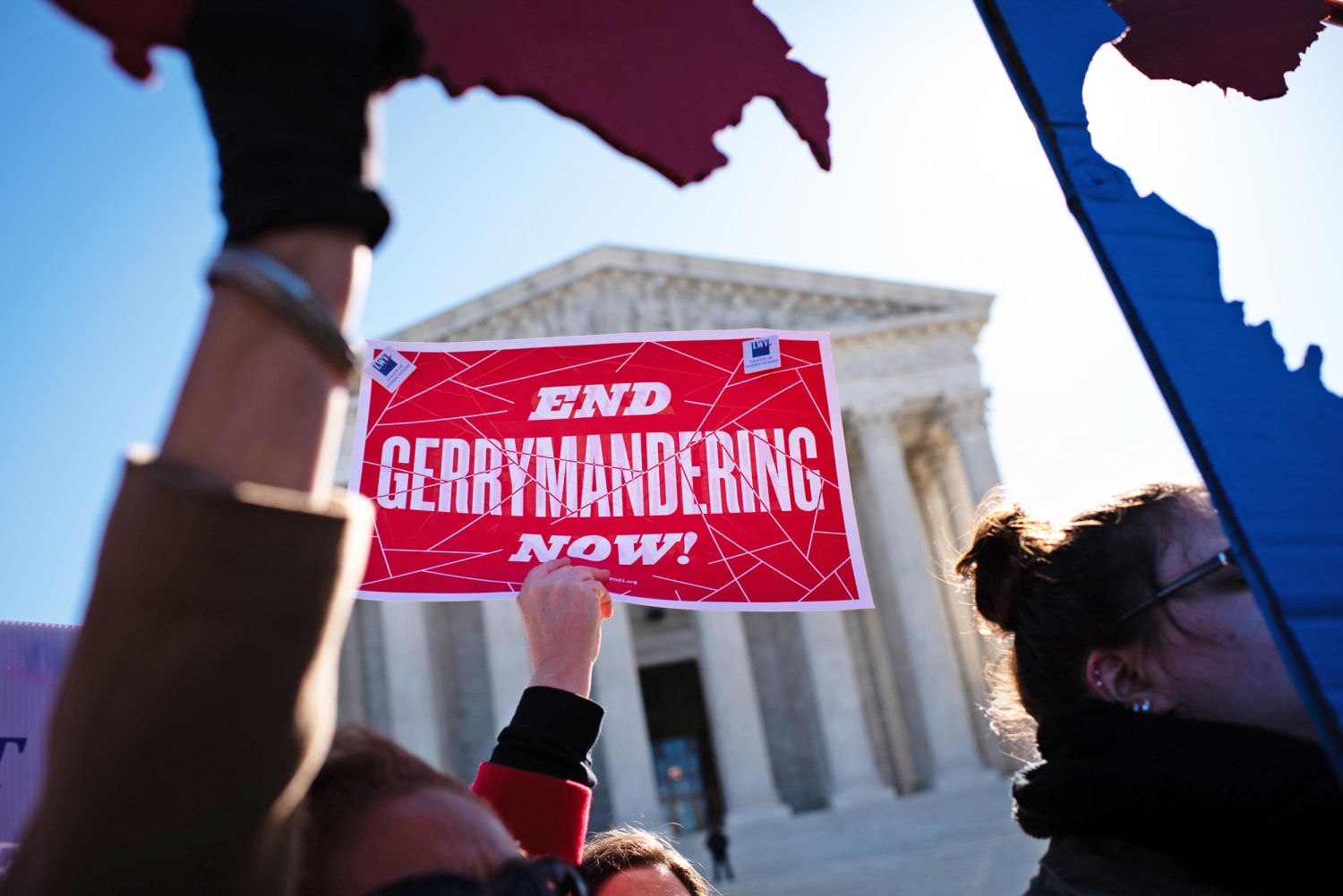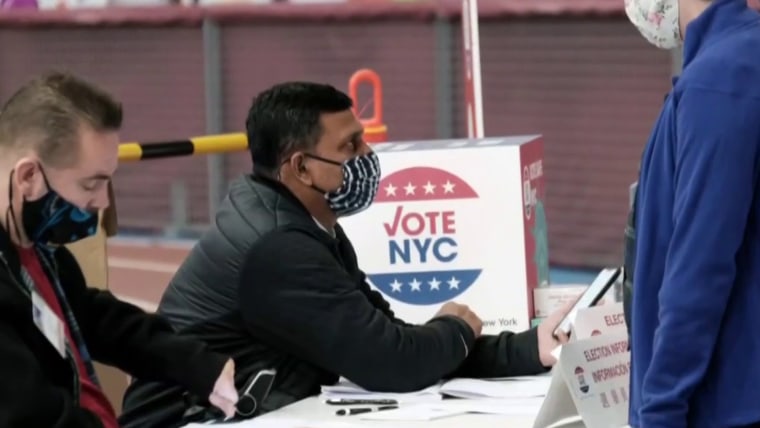WASHINGTON — The Supreme Court agreed on Thursday to decide whether legislatures, not state courts, have final authority to decide how elections for federal candidates are conducted, taking up a challenge over North Carolina’s new congressional map.
Republican legislators are challenging a state Supreme Court ruling that threw out the legislature’s map for redrawing congressional district boundaries following the latest census. The court said the map was excessively partisan and violated the state constitution by failing to reflect North Carolina’s general political party makeup.
At the heart of the case is an idea gaining support among conservatives, known at the independent legislature theory: the notion that state legislatures have the sole power to set the rules for elections and that their decisions cannot be reviewed by state courts. Former President Donald Trump’s supporters advocated that position during disputes over the 2020 presidential election, for example, saying state courts had no authority to modify the rules for casting ballots by mail. Those arguments did not prevail, but at least four members of the U.S. Supreme Court found them to have some appeal.
In the case now before the court, a victory for the North Carolina Republicans “would radically alter the power of state courts to rein in state legislatures that violate voting rights in federal elections,” said Rick Hasen, a professor and an election law expert at the University of California at Irvine. “It could essentially neuter the ability of state courts to protect voters under provisions of state constitutions against infringement of their rights.”
State Republicans, led by House Speaker Timothy Moore, argue that the elections clause of the U.S. Constitution gives them sole authority to decide issues such as redistricting, pointing to the provision that says the manner of federal elections “shall be prescribed in each State by the Legislature thereof.”
That clause “does not leave the states free to limit the legislature’s constitutionally vested power, or place it elsewhere in the state’s governmental machinery,” they told the Supreme Court in their written submissions.
State courts cannot impose their own policy determinations about the extent to which partisan considerations affect redistricting, they said, nor can they second-guess the legislature about such issues as curbside voting and the deadline for receiving mail-in ballots.
But voting rights groups urged the justices to rule that state courts have a role to play in assuring that legislators abide by their own state constitutions.
“The U.S. Constitution does not grant impunity to a state legislature for violations of its state constitution simply because the legislation relates to congressional elections,” said Neil Katyal, a Washington lawyer representing the government watchdog group Common Cause. “The elections clause does not displace this ancient power of judicial review.”
Ruling otherwise would “cancel the state constitutional rights of the citizens,” he said.
Four of the Supreme Court’s conservatives have appeared to endorse the independent legislature theory. In a 2020 dispute over voting in Wisconsin, Justice Neil Gorsuch said, “The Constitution provides that state legislatures — not federal judges, not state judges, not state governors, not other state officials — bear primary responsibility for setting election rules.”
Clarence Thomas, Samuel Alito and Brett Kavanaugh have expressed similar views.
Matt Sanderson, a Republican election law expert at the Washington firm of Caplan and Drysdale, said the Constitution has always been interpreted as “authorizing the legislatures simply to set election ground rules in advance, with administrators filling in any practical holes in the statutory scheme and state courts protecting individuals’ voting rights.”
He also said a ruling for North Carolina lawmakers could bring about a big change in how elections for president and members of Congress are conducted. “State courts would have less power to keep legislatures in check or to interpret poorly written laws in a manner that protects voting rights. It would also signal the Supreme Court’s willingness to strongly consider ratifying a rogue state legislature’s post-election appointment of electors.”
The court will hear the case in its next term, which begins in October.
Source: | This article originally belongs to Nbcnews.com











